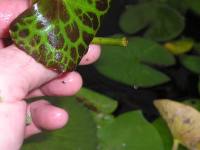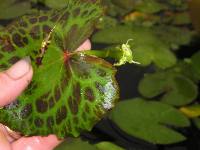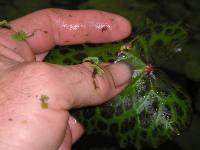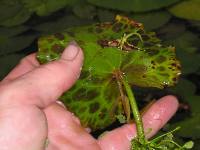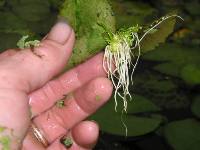|
Fecundity in Nymphoides By David Curtright - Click images to enlarge
Here is a series of pictures that demonstrates something that I think is as interesting as it is unusual. Perhaps it is not too rare, but I have only seen it occur in the past two summers. I take care of a pond in La Jolla, California, a community near the ocean here in San Diego County. In this pond, I have a pot of Nymphoides crenata, which are accompanied by several large koi that the pond owner insists on keeping. Periodically, the koi get into the N. crenata pot and tear things up, as all koi are wont to do from time to time. When they do, they scatter the freshly disembodied leaves of the N. crenata to the four winds, so to speak. Most of those leaves and leaf fragments drift down stream to get caught up in a bunch of watercress, and Hydrocotyl ranunculoides. After a week or two, something interesting begins to happen. At the bases of the stems, and wherever the leaf is torn or broken, young plantlets begin to develop. I collect these as they show themselves and bring them home to one of my greenhouses, wherein they continue to develop into mature plants. I can then pot them up and sell them. They are like money in the bank for me. As mentioned in my article "The
Genera Nympoides and Villarsia", there
are several ways for Nymphoides species. to reproduce,
seeds (N. peltata being the easiest in my experience),
runners (again N. peltata, and N. crenata), and
through offspring generated from the undersides of the leaves
(N. cristata, N. indica etc.) |
||
6.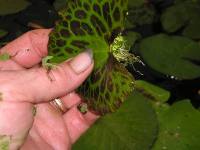 |
7.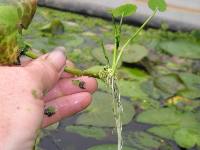 |
8.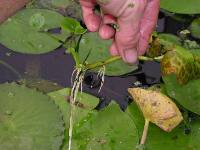 |
